
Gold Standard: 9 Host Cities of the Summer Olympic Games
July 22, 2021
Dating as far back as 776 BC, the ancient Olympic Games honored the gods through athletic competition for nearly a dozen centuries until they were banned as a pagan festival under Christian Emperor Theodosius I. At the end of the 19th century, however, they were revived as an international athletic competition, held first in their ancient home of Athens and then rotating to different cities around the globe. Today’s modern Olympics honor the hope for international peace and brotherhood by bringing together the nations of the world for sportsmanlike competition.
Since its revival, the Olympics have been held on four of the world’s continents—Europe, North America, Asia, and Australia. This year, Tokyo will host the delayed 2020 Summer Olympic Games. It will be the fourth Olympic Games held in Japan, which also hosted the 1964 Summer Games (Tokyo) and the 1972 (Sapporo) and 1998 (Nagano) Winter Games. For 16 days during every Olympics, one global city captures the attention of the world. As Yannis Ploumis, owner of Ploumis Sotiropoulos Real Estate, explains, “When Athens hosted the Olympics in 2004…it was an unforgettable experience for us Greeks as hosts, and I believe the same is true for the inhabitants of each city that has ever had the privilege to host this event.” Here, Luxury Defined presents nine world-class cities that have been—or, in the case of Tokyo, soon will be—so privileged.
Rio de Janeiro, Brazil
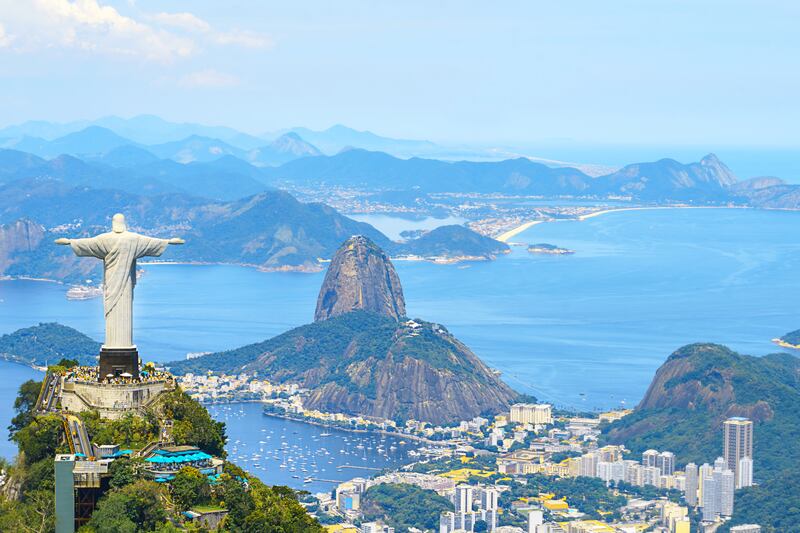 Opens in new window
Opens in new windowIrresistible Rio offers drama at every turn: spectacular mountain scenery, stunning views of the South Atlantic, dazzling tropical beaches, lush rainforest wilderness, and, of course, the energy and effervescence of the city itself. The Rio 2016 Summer Olympics was a gala celebration. The city’s famed diversity, which is reflected in its cuisine, art, and music, was on full display: city fathers transformed the entire metropolis into a stage with open-air “music, visual arts, literature, theatre, dance and pop art” events “in streets, squares, parks, and beaches across Rio.”
Related: Read an Architect’s Guide to Rio de Janeiro, Brazil
London, U.K.
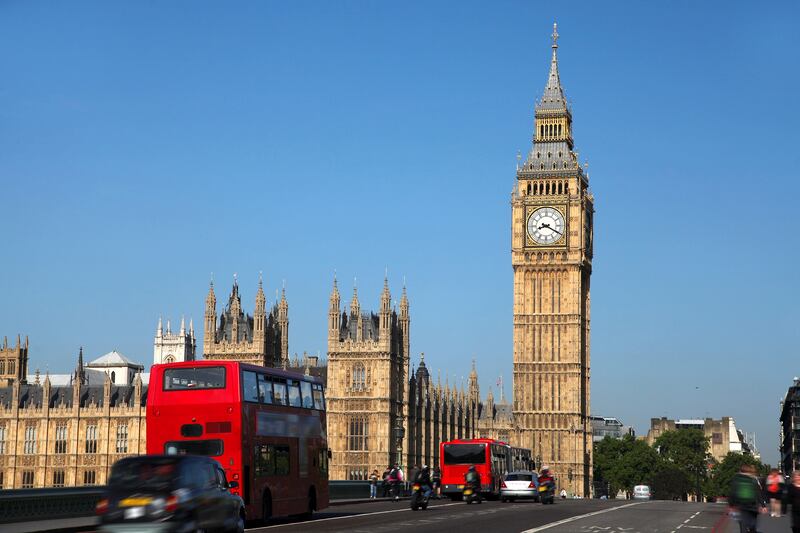 Opens in new window
Opens in new windowIn 2012, London was the first city to host the Summer Olympics three times. One of the most-visited cities in the world, London’s history as a major metropolis stretches back to the Roman Empire. Today, it is one of the most diverse cities on the planet with more than 300 languages spoken within the city center alone. Accordingly, London highlighted its modern multicultural identity throughout the 2012 Olympic Games. Contemporary London combines an array of historic landmarks and cultural institutions with the powerful innovation of a global finance capital and the artistic and culinary brilliance of one of the world’s most dynamic metropolises.
Beijing, China
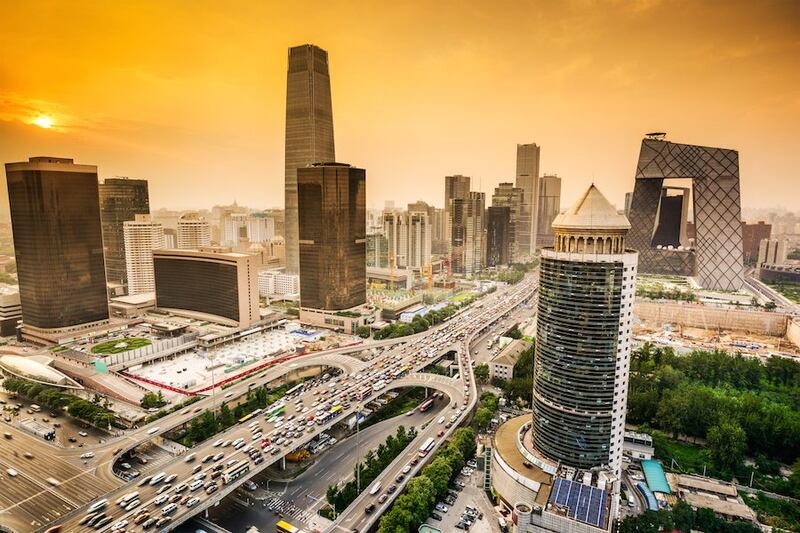
The world’s third-most populous city, Beijing has been the capital of China for many centuries, and modern Beijing spans the ages. From its ancient Forbidden City and 15th-century Temple of Heaven to its National Stadium built for the 2008 Summer Olympics (which has since hosted opera and concert events, international soccer matches, and an urban ski resort) and neo-futuristic developments like 798 Art Zone, Beijing is a dizzying and exciting city—as well as China’s economic and cultural powerhouse.
Athens, Greece
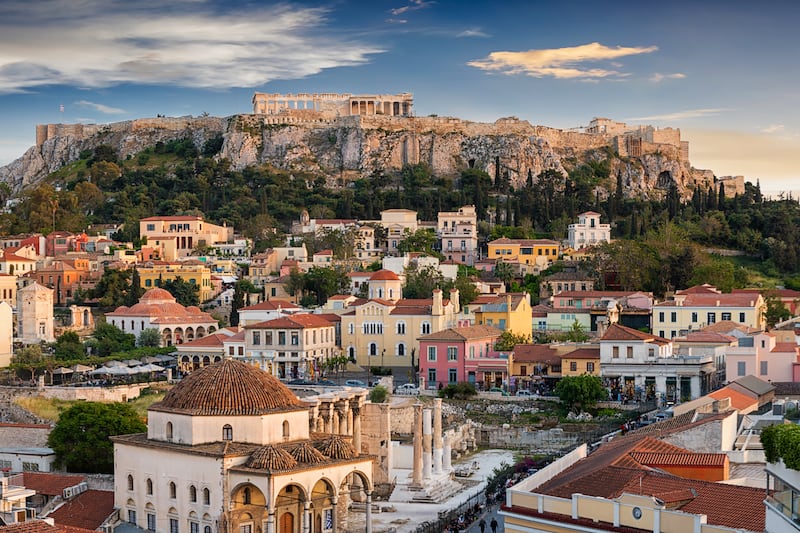 Opens in new window
Opens in new windowThe ancient birthplace of the Olympic Games, Athens was the first city chosen to host the modern Olympics in 1896. It hosted again in 2004, when the Summer Olympics returned to its earliest home. The 2004 men’s and women’s marathons were run on the same route as the 1896 Olympic marathon, which was won by Greek water carrier Spyridon Louis, who became a national hero. The classical heritage of Athens remains central to its beauty, and with much of its historic center closed to cars, its expansive pedestrian zone can feel like a time machine into ancient Greece. Despite recent financial difficulties, city leaders remain dedicated to the centrality of art and culture in Athens; the recently opened Stavros Niarchos Foundation Cultural Center (SNFCC), which houses the National Opera and National Library complex in Kallithea, looks toward the future of this age-old city.
Sydney, Australia
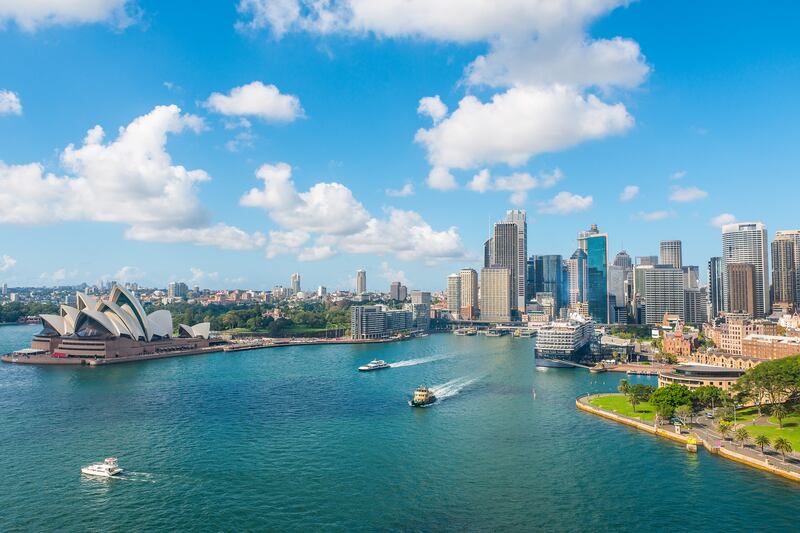 Opens in new window
Opens in new windowActive, outdoorsy Sydney ushered in the 21st century with the 2000 Summer Olympics. The young and energetic city highlighted its Aboriginal heritage in the opening ceremony and in the person of Cathy Freeman, who lit the Olympic Flame before winning the women’s 400-meter event. Sydney’s vibrant multiculturalism is essential to the city’s culture. The internationally famed Sydney Opera House’s resident companies include ballet and aboriginal dance companies, and the city’s dining scene celebrates its Pacific Rim location, with Asian cuisines especially well represented. With five national parks, famous white-sand beaches, and the transformation of the 2000 Olympic Park into a sport and cultural complex, Sydney uniquely combines a broad array of athletic pursuits with the urban sophistication of a world-class city.
Atlanta, Georgia
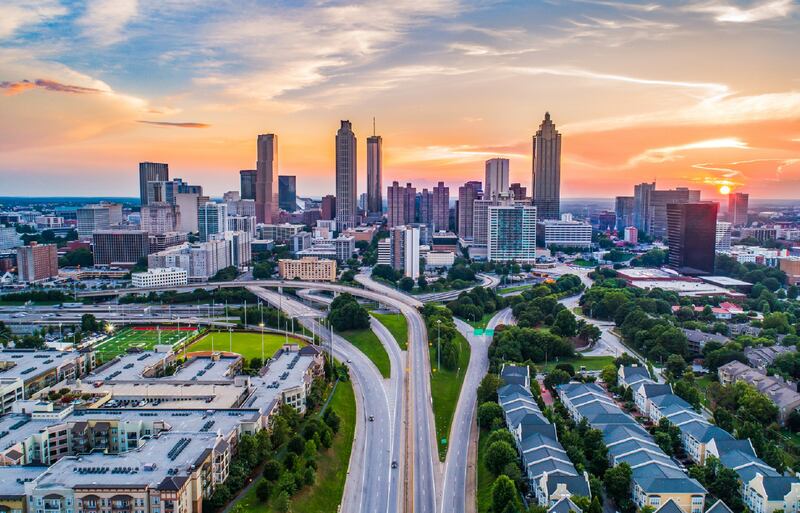 Opens in new window
Opens in new windowThe 1996 Olympic Games in Atlanta began a revitalization of a bustling city that has served as a commercial hub for the southeastern United States since before the Civil War. The business-minded city, home to the world’s busiest airport, is also a major media, diplomatic, and technology hub. Yet Atlanta retains a surprisingly relaxed and tranquil feel due to both its Southern heritage and a tree canopy that has earned it the nickname of “city in a forest.” Active arts, music, and dining scenes complement established cultural institutions like The Atlanta Opera, the Atlanta Ballet, and the Atlanta Symphony Orchestra, and museums of classic and contemporary art and design accompany a broad range of historic museums and sites celebrating everything from Coca-Cola and college football to civil and human rights.
Barcelona, Spain
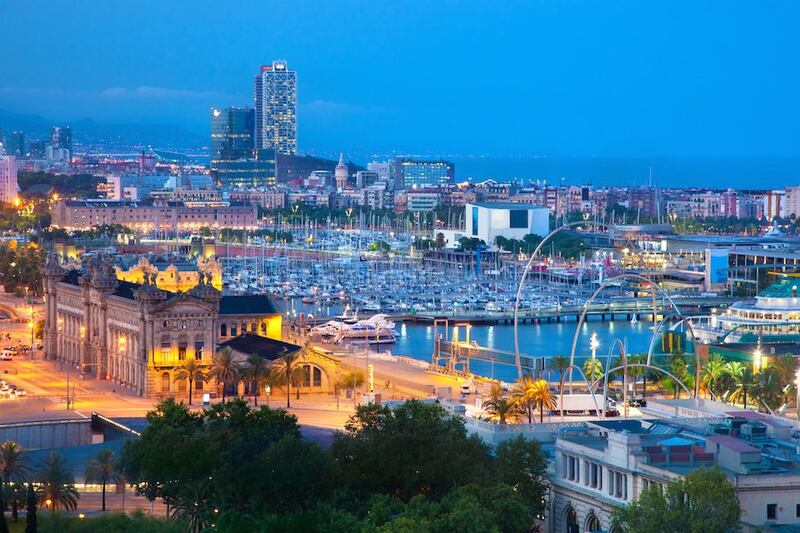
The largest city on the Mediterranean is an architectural wonderland with ancient city walls, Gothic cathedrals, quiet city plazas, and the archetypal buildings of Catalan modernism—especially the works of Antoni Gaudí. Barcelona has an architectural heritage so unique that it is the first and only city to be awarded a Royal Institute of British Architects Royal Gold Medal. The city’s culture and pace of living are influenced by the Spanish tradition of siesta, which allows Barcelonans to begin work early in the day and party late into the night. As one would expect from a locale that has given rise to culinary traditions ranging from tapas to paella to modern molecular gastronomy, Barcelona serves up innovative dining options as well. This singular and dazzling city, home to one of the most celebrated football clubs in the world, also boasts a robust sports scene, having won three World Cups and played host to the 1982 World Cup, the 1992 Summer Olympics, and the 2013 World Aquatic Championships.
Related: Take a Virtual Tour of 4 Famous Buildings
Seoul, South Korea
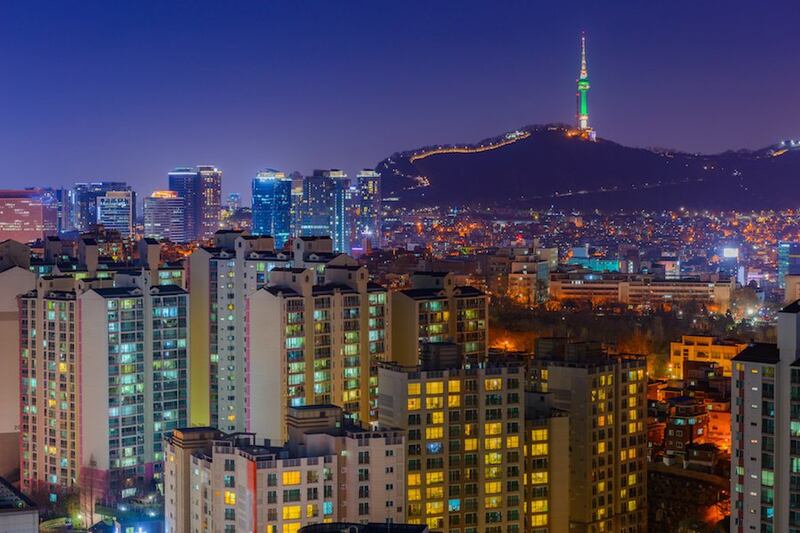
Seoul may be the most technologically modern city in the world with its incredibly fast internet, free outdoor Wi-Fi, and constantly expanding transportation infrastructure that includes a comprehensive subway system and high-speed train connections to every major urban center in South Korea. This capital city hosted the 1988 Summer Olympics, the second Olympic Games to be held in Asia and the last summer Olympics to have a daytime opening ceremony. The Seoul Olympics not only featured a mass demonstration of South Korea’s national sport, taekwondo, but also showcased the country’s economic development. They are also said to have played a key part in South Korea’s transition to a democracy, helping to ensure a peaceful response to the June Democratic Uprising of 1987. Undeniably one of the most modern and economically successful cities, Seoul has since taken its place on the world stage.
Los Angeles, California
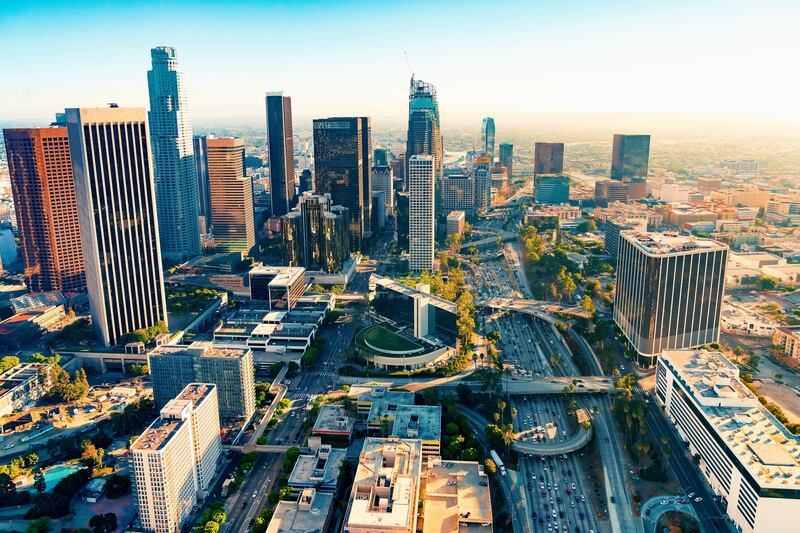 Opens in new window
Opens in new windowThe most financially successful modern Olympics, the 1984 Los Angeles Summer Games were the first to sell television rights—an appropriate innovation for the world’s entertainment capital. The 1984 Olympics likewise reflected the relationship between Los Angeles as a city and “Los Angeles” as a broader region, with venues in neighboring counties to the north and south showing the world the diversity that surrounds the second-largest city in the U.S. Angelenos can start a day hiking in the Hollywood Hills or surfing the beaches of Malibu, enjoy an afternoon at the Getty Center or Los Angeles County Museum of Art, and spend the evening dining in one of the city’s many ethnic neighborhoods or watching the sunset over seafood in Santa Monica.


